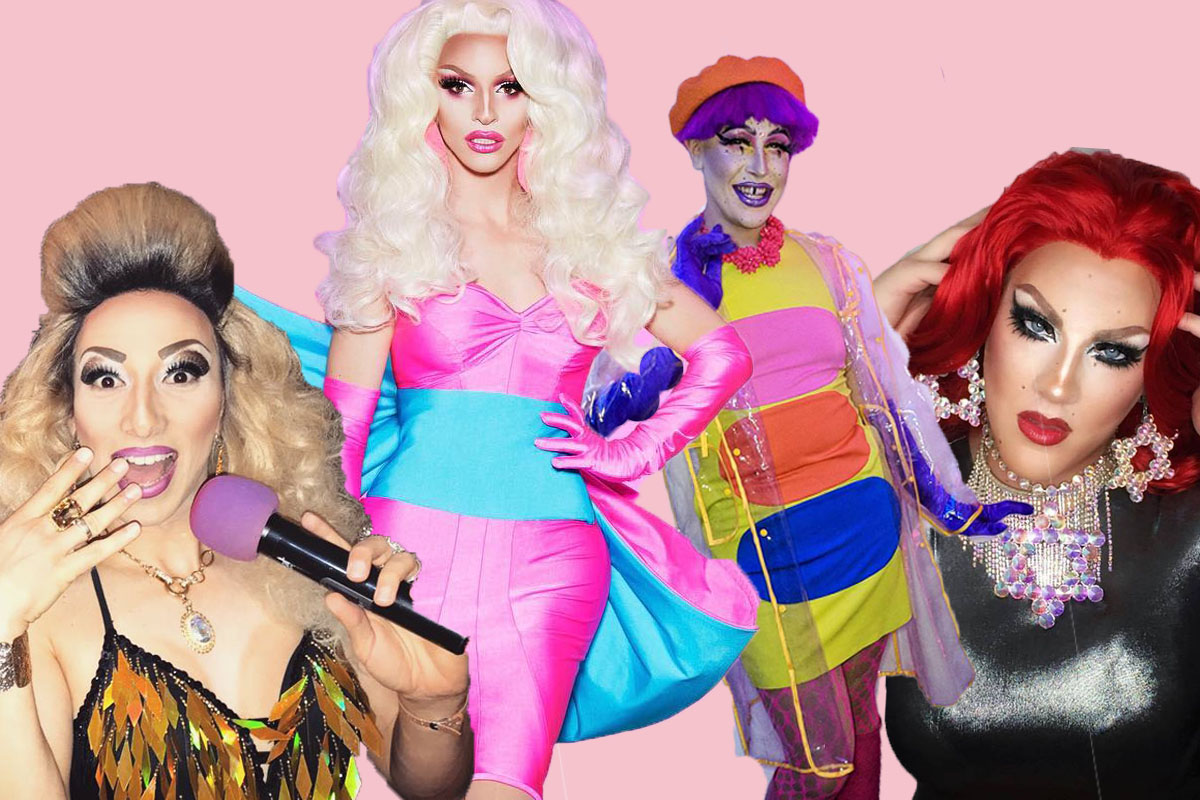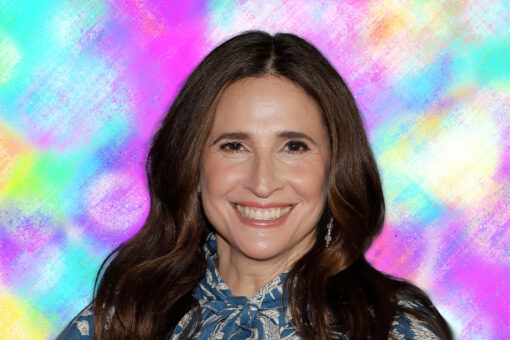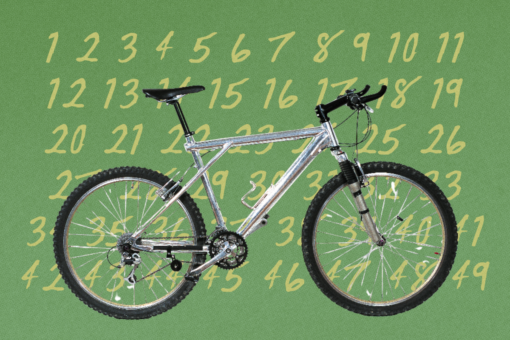There is something weirdly Jewish about drag that I can’t exactly put my finger on — maybe it’s the performativity or the corny jokes… it’s hard to tell. What I know is that drag queens, especially Jewish ones, give me life. Jayson Littman, the founder of Hebro — an organization that hosts events that celebrate the gay Jewish community — told the Guardian that, “Drag is very much part of gay culture, and so is Judaism. Some of the gayest parts of LGBT culture are Jewish: Broadway, Barbra Streisand and big hair… Being a character in drag is all about creating a big, exaggerated personality, and most gay Jews have the perfect role model to imitate for that: our mothers.” Very good point.
Here are just a few of the drag Jewesses currently serving up some kosher realness…
Lady SinAGaga
No Jewish drag queen list would be complete without mentioning Lady SinAGaga. You might not be able to guess this by looking at her, but Lady SinAGAGA grew up Orthodox as Moshiel living on Long Island. She attended Orthodox Jewish day schools and even spent two years in a Jerusalem yeshiva after high school before she went to college at the School of Visual Arts in New York. Lady SinAGAGA’s drag debut was at High Homo Days, put on by Hebro during, you guessed it, the High Holidays. Her instagram bio describes her drag persona and its relationship to Judaism best, “Lady SinAGaga Drag’s Jewish American Princess ✡ – Based in NYC – Love you all and thanks for the Support XOXO #JAPRealness”.
Mini Horrorwitz
As Jews, we are often forced into victim roles that don’t fit our actual identity as a resilient people that are always rebuilding and innovating. Mini Horrorwitz’s Jewish superhero routine, or as she calls it, her Jewper Hero routine, the Diary of Mini Horrorwitz, subverts this false narrative. She premiered this routine at Bushwig, a drag festival in New York, last September.
Mini described her routine to me as “the story of how a young Jewish girl could only trust in her diary to tell her truths, but then realizes she has to be her own hero in this world and breaks out of her shell of fear to fight Hitler… who happens to be a big old wimp… It’s about how love and being who you are will always destroy fear and hate.” Mini’s nazi is played by her Jewish drag sister, Amber Alert (in the drag world, performers often define fellow drag friends as family).
Her inspiration came from “listening to Britney Spears one day as any good queerdo should be doing and her song ‘Dear Diary’ came on and I had an epiphany! The lyrics were right and made me think of Anne Frank and how awfully wonderful it would be to perform this.” This performance is especially powerful because Mini is the grandchild of two Holocaust survivors on her mother’s side.
Miz Cracker
You may not know Miz Cracker aka Cracker yet, but you are about to as it was just announced that she is going to be on season 10 of Rupaul’s Drag Race.
Cracker is a multifaceted queen; she is a writer, comedienne, and drag queen full-time (or more than full time as she told Slate’s Working podcast in November). I’m particularly fond of her YouTube series, “Review with a Jew,” where she analyzes Rupaul’s Drag Race. Each episode begins with a cartoon of her trying to deal with a pull-down projector board as “Hava Nagila” plays.
In her performances, be it on a podcast, a stage show, or an appearance, Miz Cracker always discusses her Jewish identity. She threw in a quip on her recent interview on Working that she “can’t do math, she is only half Jewish.” A significant portion of Cracker’s work can even be considered tikkun olam (the Jewish concept of healing the world); her drag career began in 2011 when she began participating in Bob The Drag Queen’s marches for marriage equality in Times Square. She said in a recent interview with Slate that she drew her strength to do drag from her experience of being an outsider as a Jewish person — she felt that if she could be proudly Jewish, she could be anything.
Suzi Boum
Lior Yisraelov is a master of transformations; he went from a yeshiva boy to an openly gay Arabic teacher to the most popular drag queen in Israel, Suzi Boum. His Orthodox family evolved with him as well. “Each time I came out with another revelation, my family eventually accepted it, even if they weren’t happy about it,” Boum told the Jewish Telegraphic Agency (JTA). “I always say I came out three times: as secular, as gay and as a drag queen,” he said. “And I understood why it was hard for them each time. But I figured if they could get over the fact that I was gay, they could get over the fact that I wear dresses.”
Yisraelov had a guide in this whole process — his transgender eldest sister, Arizona, who performed drag before transitioning. She even gave him her old drag name, Suzi Boum, when she retired from drag in 2008.
Yisraelov’s drag career began when he started doing bachelorette parties at the behest of a friend. He quickly learned that he preferred them to gay events. Plus it was an untapped market. He began to perfect his drag technique by watching YouTube makeup tutorials.
A few years later he began using social media and creating merchandise, which is when Suzi Boum really took off. “He marketed himself to the straight world, which no one else had really done,” said Dekel Lazimi, a filmmaker who is making an online video series about Tel Aviv’s drag scene. “The market was empty five years ago, and he went in and killed it. Others are trying to follow him now.”



